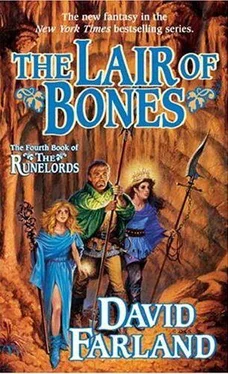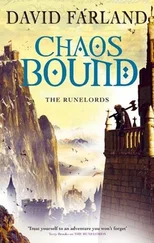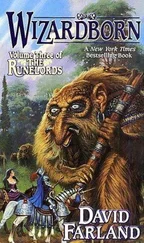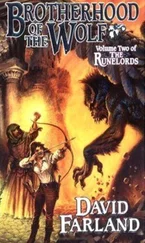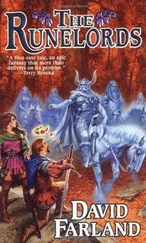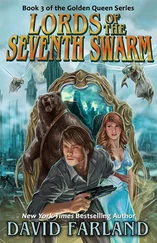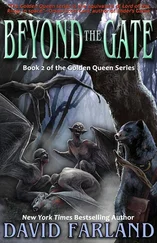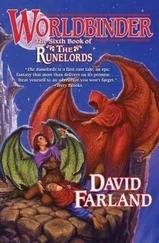David Farland - The Lair of Bones
Здесь есть возможность читать онлайн «David Farland - The Lair of Bones» весь текст электронной книги совершенно бесплатно (целиком полную версию без сокращений). В некоторых случаях можно слушать аудио, скачать через торрент в формате fb2 и присутствует краткое содержание. Жанр: Фэнтези, на английском языке. Описание произведения, (предисловие) а так же отзывы посетителей доступны на портале библиотеки ЛибКат.
- Название:The Lair of Bones
- Автор:
- Жанр:
- Год:неизвестен
- ISBN:нет данных
- Рейтинг книги:3 / 5. Голосов: 1
-
Избранное:Добавить в избранное
- Отзывы:
-
Ваша оценка:
- 60
- 1
- 2
- 3
- 4
- 5
The Lair of Bones: краткое содержание, описание и аннотация
Предлагаем к чтению аннотацию, описание, краткое содержание или предисловие (зависит от того, что написал сам автор книги «The Lair of Bones»). Если вы не нашли необходимую информацию о книге — напишите в комментариях, мы постараемся отыскать её.
The Lair of Bones — читать онлайн бесплатно полную книгу (весь текст) целиком
Ниже представлен текст книги, разбитый по страницам. Система сохранения места последней прочитанной страницы, позволяет с удобством читать онлайн бесплатно книгу «The Lair of Bones», без необходимости каждый раз заново искать на чём Вы остановились. Поставьте закладку, и сможете в любой момент перейти на страницу, на которой закончили чтение.
Интервал:
Закладка:
So they hurried over the mountains, down through lesser towns, into the dead lands blasted by reaver curses, where at last they saw Carris gleaming upon the banks of Lake Donnestgree.
Here, the green fields had all gone gray a week ago. Vines and trees lay in twisted ruin. Every blade of grass had withered. Nothing lived. Even the crows and vultures had fled. Only the corpses of rotting reavers, monoliths, their mouths frozen wide in a rictus smile that brimmed with teeth, offered mute testimony to what had happened here.
For a moment as Borenson rode into the blasted lands, he had an odd sensation. He felt as if instead of riding from Fenraven to Carris, he was riding from the past into the future. Behind him lay the sweet green fields of the world he had known. Ahead lay rot and oblivion.
Sarka Kaul sniffed the fields. Borenson could smell old reaver curses on the dead ground. “See no more.”
“Be thou dry as dust.” The ground seemed to whisper the curses. “Rot, O thou child of men!”
“Those who saw the battle tried to describe it,” Sarka Kaul whispered, as he stared out across the killing fields, “but words failed them. I could not envision this. I couldn’t imagine how wide the destruction went, or how perfectly it had been carried out.”
Borenson spat onto grass that was as gray as ash. “No rain here in a week. A stinking inferno this shall all make.”
As the three approached Carris, the sun slowly descended beyond the rim of the world, hidden behind towers of billowing smoke. The wind was ominously still, and the heat that rose from the soil leached the stink from the blasted lands and left it hovering in a fetid haze. To the west the foothills were all gray with decay, and to the east Lake Donnestgree lay flat and dull. Not a single wave rippled across its surface. Gone were the seagulls that had winged above its shore a week past.
Ahead, Carris was a city of ruins. The plaster had all cracked from the castle walls, so that only a few bright strips still gleamed above the gray stone. The walls had buckled and bulged. Gone were the doves and pigeons that had wheeled above Castle Carris like confetti.
It was a far fairer sight that greeted my father’s eyes, Borenson thought.
Why Carris? Borenson wondered. Why would the reavers attack it again? There is nothing here worth winning, nothing worth defending. Yet we keep on fighting, like a pair of crabs squabbling over a worthless rock.
Unless there is something here that the reavers value? he wondered.
But what it might be, he could not guess. The land was a broken waste.
Still the armies had gathered. A million reavers were marching from the south, while men and women paced along the cracked castle walls, armor gleaming dully like the backs of beetles in the dying light.
Borenson caught wind of a noxious odor, and noted that to his right were the trenches that the reavers had made to channel water from the lake. The reavers had thrown in some huge yellow stones.
At the time no one had comprehended what the reavers were doing. It wasn’t until Averan explained that reavers could only drink water rich in sulfur that anyone had understood: the monsters were creating drinking water.
But now the ditches were filled with lumps of white lye soap, brown human turds, and an oily scum that colored the water’s surface. Chondler’s men had poisoned it so badly that even a whiff of the putrid mix made Borenson’s eyes burn.
“Even if the reavers manage to win Carris,” Myrrima said, “I don’t think that they’ll be enjoying their stay.”
The sun dipped behind the peaks, and suddenly the black plains plunged into near darkness. Borenson heard a cry rise up from the city, and he glanced back to the south.
A rim of fire could be seen on the mountaintops, twenty miles behind, and columns of smoke rose straight up like the black boles of vast trees. High in the atmosphere, the smoke spread like a mushroom cap, or like the limbs of an oak. Already, clouds of smoke arched overhead.
But it was not the encroaching darkness that caused the cries of alarm. There, in the distance, behind the rim of fire, reavers marched in a broad band, and raced down the mountainside like a black cataract. The distant hissing of their breathing and the pounding of their feet made it sound as if a dam had broken, and trees and boulders tumbled in the glut of the flood.
The city of Carris squatted on an isle out in Lake Donnestgree. The city was more than two miles long from north to south, and a little over a mile wide at its widest point. One could only reach it by boat or by walking up a narrow road that led over a long causeway.
Here on the causeway a week ago, towers and gates had guarded the city. But the reavers had pushed the towers over and thrown down the city gates, and Marshal Chondler, despite all his good intentions, had not had time to replace them.
Instead, at the head of the causeway, his people had dragged wooden rubble from all around—thatch from cottage roofs, timbers, fence posts, broken wagons and chairs, a girl’s straw doll—and heaped them all into piles beside the road. This would become a firewall to protect the city from the reaver’s advance, but even a firewall would not hold for more than an hour or two.
Amid this heap of trash, the heads of several huge reavers lay in the rubble, their mouths thrown wide. Borenson recognized the enormous fell mage that had led the first attack on the city, along with the heads of other monsters. Their mouths were filled with philia cut from the bung-holes of dead reavers, so that the scent of moldy garlic wafted over the fields.
Straw lay strewn over the fields at the mouth of the causeway, a sure sign that Chondler’s men had lain down caltrops —wicked bits of sharp metal bolted together in order to puncture the hooves of charging horses.
But would a caltrop harm a reaver? Borenson wondered. He peered hard until he saw a twisted piece of metal rising up through some straw, a blade at least five times larger than a normal caltrop.
Where would he have gotten so much metal? Borenson wondered, and then recalled the tens of thousands of knight gigs and blades that the reavers had lost here a week ago.
Borenson rode toward the city. A few dull rays of dying sun still managed to penetrate the smoke. All along the city wall, people gazed out at the newcomers—men in bright helms; old women with jaws set in determination, their faces framed by graying hair; young boys pale with fear—so many wan faces like scattered leaves cast upon a field of soot.
The castle gates were still down, along with some of the towers, but the rubble had been shifted, forming barricades of stone that bristled with reaver blades all along the causeway. Such barricades were not meant to stop reavers, only to slow them so that archers and artillerymen could have time to take aim.
Wooden platforms had been set along the wallwalks, and rafts floated in the lake, and on these and on the towers sat an array of ballistas and catapults that perhaps had not been matched in all of Rofehavan’s history. In the lee of each artillery piece crouched a pair of archers from Heredon with bows of spring steel. Farther back, those who had not steel bows were armed with Indhopal’s horn bows. And archers with longbows perched along the castle walls.
“Look at that!” Myrrima said. “Chondler must have gathered artillery from every castle within a hundred miles.”
“Two hundred,” Sarka Kaul said, “though little good it will do him.”
Borenson’s heart was full of foreboding.
Why did Gaborn tell his people to gather here? Borenson wondered. The city had not fared well in the first attack. Only a miracle had saved it. Only the Earth King, summoning a world worm in its defense, had managed to free the city. The mound of dirt around the worm’s hole still rose up like a crater, several hundred yards to the north.
Читать дальшеИнтервал:
Закладка:
Похожие книги на «The Lair of Bones»
Представляем Вашему вниманию похожие книги на «The Lair of Bones» списком для выбора. Мы отобрали схожую по названию и смыслу литературу в надежде предоставить читателям больше вариантов отыскать новые, интересные, ещё непрочитанные произведения.
Обсуждение, отзывы о книге «The Lair of Bones» и просто собственные мнения читателей. Оставьте ваши комментарии, напишите, что Вы думаете о произведении, его смысле или главных героях. Укажите что конкретно понравилось, а что нет, и почему Вы так считаете.
